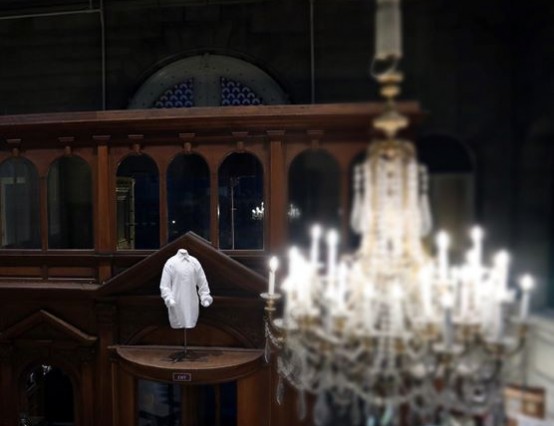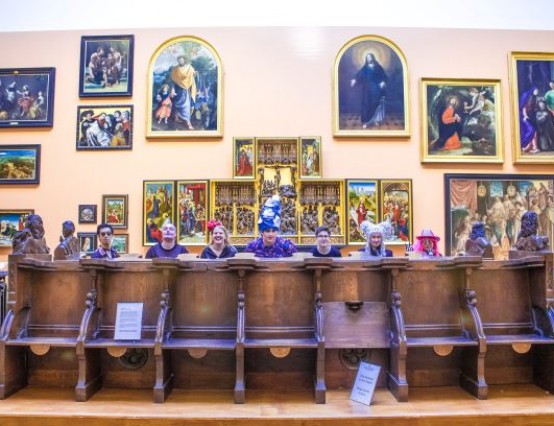Paula is presenting the same Q&A to each participant to draw on common themes and encourage a wider dialogue to support pathways. A core concern at Talkin’ Culture is how the Arts landscape is being compromised in terms of the Equality Act through severe funding cuts. For example, unpaid placements and internships exclude those who can’t afford to enter the pipeline by other means despite being qualified. Talkin’ Culture agrees with major reports that factors like this are an Equality Act issue.
Over the course of these blogs Paula will invite emerging conservators to do the talkin’ including their suggestions for positive change to address equality and sustainability in this sector. We hope constructive comments and ideas will be shared to address equality, sustainability and the endangered list of crafts.
Talkin’ Culture Talks to Thomas Van Kampen currently a Freelance Conservator of Furniture and Decorative Arts about Routes, Risks and Rewards.
Did you have an easy and obvious route into historic conservation?
Yes, my path to become a conservator was pretty well set, as soon as I started my vocational training as a traditional woodworker at the Wood and Furniture College in Amsterdam (HMC Amsterdam). I finished there as a furniture restorer and from there I went to study Conservation at West Dean College, where I achieved my MA. I have always been interested in (natural) history, science and arts and crafts. Now, I am happy to have found a profession which includes all three.
How were your interests supported?
I have always been inspired by my parents to find an occupation in which I would find joy and satisfaction. I would say I succeeded in doing so, as I go to work happy (almost) everyday.
Have you had to take on unpaid work, unpaid internships or have you been expected to work for nothing to gain experience?
Yes, 7 out of 8 internships and work placements I have undertaken were unpaid. Sure, I would receive a gift at the end of some, but that would hardly cover a single day of work. I do however not wish to be ungrateful for the experience I have gained at these placements.
Is pathway information to study and work in historic conservation easy to find?
If you know what conservation is and wish to study it then yes, there is more than enough information out there online and in literature. However, the conservators are and have always been kept behind the scenes, so it is not exactly a much advertised profession.
What makes you persevere?
The pleasure of being able to practice the craft that I am passionate about and knowing that I am contributing to preserving objects of historic value.
What are your biggest challenges as a qualified, emerging conservator?
Without a doubt: finding and getting a job. Conservation jobs, especially permanent ones seem as rare as hen's teeth. I would advise emerging conservators to try and do a (paid if possible) internship first, as you are likely to be up against professionals with a lot more work experience than you, which as an emerging conservator will always be a challenge. In my experience even eight months of work experience can make a big difference.
Biggest high and low so far?
My biggest high would be gaining my Masters and actually having been able to find work so soon after. As far as my lows are concerned, I will admit that I found it very difficult to adapt to living with rather big financial insecurities as, unfortunately, conservation does not pay as well as other professions at this level of education.
Do you think conservation skills are valued and understood in the mainstream?
Not by a long shot compared to some other professions in the heritage sector. Although social media has made some difference, conservation is still very much behind the scenes. There seems to be very little appreciation for the fact that the (historic) objects the public gets to enjoy and learn about often take huge skill and effort to preserve. It is an aspect people seem to be mainly unaware off. I think it is very important to raise more awareness, as more appreciation mean more funds and more funds mean better care of cultural and natural heritage. I think that the National Trust conservation studios at Knole is a nice example of pushing conservation more to the foreground. A space in the building has been dedicated to explaining what conservators do and allowing visitors to have a peek into the actual studio.
If you summarised your risks what are your rewards?
The biggest reward is knowing that the object I have worked on can be enjoyed for another however many years more and that I get to work on a great variety of interesting objects. In this job you never stop learning. There is always more to discover.
What are your recommendations to improve fairer conditions for new entrants into historic conservation?
Getting rid of unpaid internships. This enables a lot more people, who might be financially disadvantaged, yet just as talented, to learn and contribute to heritage and are given a better chance.
My huge thanks to Thomas Van Kampen for taking part; our next Q&A blog is next week.
www.talkinculture.com










Hi Paula, just to let you know I've shortened your summary to the recommended maximum of three lines. The rest of the text appears at the start of the body text now.
Such a great interview that sheds light on a profession that often goes unnoticed! I think it would be a great idea to introduce the general public to all the efforts conservators put in.